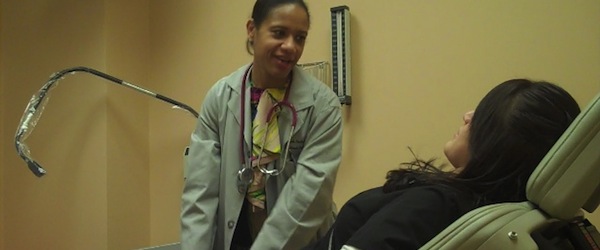
![]() photo credit: Tim Pearce, Los Gatos
photo credit: Tim Pearce, Los Gatos
Internships are a fantastic way to explore different career paths, gain work experience and get key networking opportunities.
In fact, internships help to experience many of the 15 career development topics that will follow you through life. Unfortunately, it’s common for companies to not pay their interns. Schools will sometimes offer class credit in exchange for working in unpaid internship programs. Now the U.S. Department of Labor is cracking down on unpaid internships.
The government recently released a list of 6 criteria that must be met for an unpaid internship to be legal.
1. The internship, even though it includes actual operation of the facilities of the employer, is similar to training which would be given in an educational environment;
2. The internship experience is for the benefit of the intern;
3. The intern does not displace regular employees, but works under close supervision of existing staff;
4. The employer that provides the training derives no immediate advantage from the activities of the intern; and on occasion its operations may actually be impeded;
5. The intern is not necessarily entitled to a job at the conclusion of the internship; and
6. The employer and the intern understand that the intern is not entitled to wages for the time spent in the internship.
This action has inspired all kinds of debate in print media and the blogosphere. Articles are saying that the increased scrutiny on internships will likely lead to less internship opportunities. Although I think it’s always good to be paid for your work, I do not think that unpaid internships should be illegal. Am I thinking in an old school way here? I’d love to hear what YOU think – especially if you have ever been an intern.
Unpaid Internships
My first unpaid internship was at SPIN magazine in Manhattan when I was 20. This was my first test to see whether the music business was the right career fit for me. I was planning to intern at Rolling Stone but a month or two before my start date they called to say that Bono’s niece was snagging the spot: owner/publisher Jann Wenner wanted to do Bono a favor. Thanks Bono! I’d read Rolling Stone since I was 15 and had never read SPIN…but I interviewed at SPIN just in case I needed a Plan B. I’ll write more about that experience in future posts, but to stay on topic I’ll say that I gained all kinds of experience that summer. On my first day, my job was to listen to an interview with Tom Petty on cassette and type up every word that was said so they could print it in the next issue. That summer I worked on everything from the Reader’s Poll to researching a cover story on Elvis to fetching iced coffee a couple times a week for publisher/owner Bob Guccione, Jr. The iced coffee runs were always fun – it was usually a sweltering 95 degrees in Manhattan and I was never thanked or offered an iced coffee for myself. Ah, the life of an intern….
Unpaid internships give people an opportunity to research a career path by actually spending their days working in the specific environment they’re interested in. If the intern already had the appropriate experience to get a paying job at that place, then they should apply for a paying job and not accept an unpaid position! Think about it – you pay lots of money to go to school to learn via books, lectures and research. An internship is providing you the opportunity to get real world experience at no charge! If you kick butt as an intern, you might even be able to convert the opportunity into a job later on!
I believe the government has some very valid points – internships should absolutely be educational training environments. That’s why, when I worked in the marketing department at A&M Records, I made sure to take over the internship program and teach the interns whatever I could: how we track radio airplay, how we track CD sales, what we do with that data, how and why we run promotional tours, etc. I knew what it was like to be an intern and I didn’t want to see us just stick some kid in the corner with a billion stickers for some lame band, ignoring him as he drooled on the desk from boredom while putting those stickers on the backs of the countless postcards and skateboards we left by his desk. However, I think the government’s point that the employer should “derive no immediate advantage from the activities of the intern” is crazy. That would suggest that the internship is pure classroom time. As an intern I wanted to learn but I was equally eager to work! Actually doing the kind of work you think you might want to do when you grow up is one of the reasons we take internships! And the employer of course derives some immediate advantage from that work (unless you suck, and some interns do).
Yes, unpaid internships give advantages to those with enough money to be able to afford to work for free. Yes, some unpaid internships take advantage of the interns by only handing them crap work and not teaching them a thing. But no one is forcing anyone to accept an unpaid internship…..and no company wants to pay someone to sit around and learn by osmosis…and every intern should take responsibility to figure out what he/she is signing up for before committing. I hope this extra scrutiny doesn’t limit the availability of unpaid internships. I’d be bummed if the government cracked down and removed this opportunity from future college students. Would you? What do you think about this controversial issue?
Related Posts You Might Like
5 Actions To Help Find the Right Career
15 Career Development Topics That Will Follow You Through Life
Finding the Right Career Fit | Choosing A College Major







